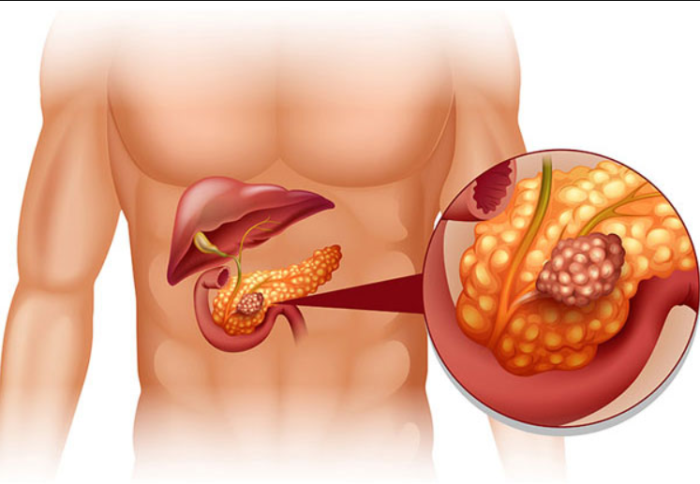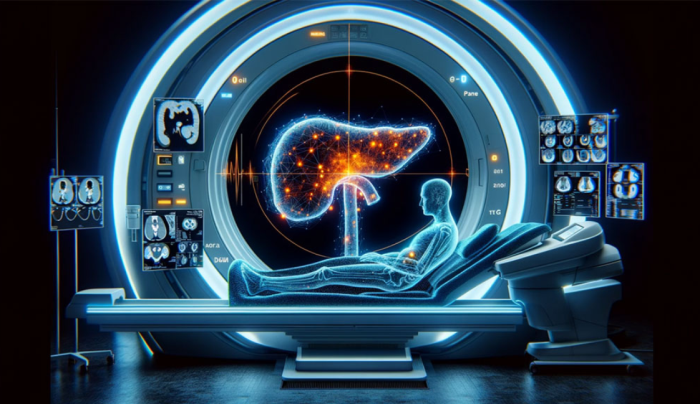Exploring Non-Surgical Solutions for Pancreas Health
Non-surgical solutions for pancreas health focus on lifestyle modifications, dietary changes, and innovative medical therapies that can effectively manage pancreatic disorders without the need for invasive procedures. These treatments often aim to enhance the function of the pancreas, alleviate symptoms, and improve overall health. As awareness grows regarding the importance of the pancreas in digestion and glucose regulation, non-surgical options are increasingly recognized for their potential benefits, offering patients a less invasive route to managing their conditions.
Innovative Approaches to Managing Pancreatic Disorders without Surgery
Innovative approaches to managing pancreatic disorders without surgery encompass various strategies, including pharmacological interventions, dietary management, and complementary therapies. Advances in medical research have led to the development of targeted therapies that focus on the specific needs of the pancreas. These non-invasive methods are designed to address conditions like pancreatitis, pancreatic insufficiency, and diabetes, providing patients with effective alternatives to surgical intervention and enhancing their quality of life.

Natural and Non-Surgical Treatments for Pancreas Health
Natural and non-surgical treatments for pancreas health include dietary interventions, herbal remedies, and lifestyle changes that support pancreatic function. A balanced diet rich in fruits, vegetables, whole grains, and lean proteins can help reduce inflammation and improve digestion. Additionally, certain supplements, such as omega-3 fatty acids and curcumin, have shown promise in promoting pancreatic health. By focusing on holistic approaches, patients can manage their conditions effectively while minimizing the need for surgical procedures.
Advances in Non-Invasive Therapies for Pancreatic Diseases
Recent advances in non-invasive therapies for pancreatic diseases have revolutionized patient care, offering innovative solutions that target underlying issues without the need for surgery. These therapies include the use of cutting-edge imaging techniques for early diagnosis and monitoring, as well as advancements in medication that specifically address pancreatic dysfunction. Patients now have access to a wider range of treatment options that prioritize non-invasive methods, ultimately leading to better outcomes and a reduced burden of invasive procedures.
How Technology is Shaping Non-Surgical Pancreas Treatments
Technology is playing a crucial role in shaping non-surgical pancreas treatments by enabling more accurate diagnostics and personalized treatment plans. The development of wearable devices and mobile health applications allows patients to monitor their glucose levels, dietary intake, and overall health metrics in real time. Additionally, advancements in telemedicine provide patients with remote access to healthcare professionals, facilitating ongoing management of pancreatic disorders and enhancing patient engagement in their own care.
New Drug Therapies for Pancreatic Health: A Non-Surgical Approach
New drug therapies for pancreatic health have emerged as a promising non-surgical approach to managing pancreatic disorders. These medications are designed to address specific issues such as enzyme deficiency, inflammation, and insulin resistance. Recent developments include novel formulations of pancreatic enzyme replacements and medications that improve insulin sensitivity, offering patients effective alternatives to surgical interventions while minimizing the risk of complications associated with surgery.
Holistic Healing: Non-Surgical Treatments for Chronic Pancreatitis
Holistic healing practices offer non-surgical treatments for chronic pancreatitis that focus on the whole person rather than just the symptoms. Approaches may include dietary modifications, stress management techniques, and complementary therapies such as acupuncture or yoga. By addressing both physical and emotional well-being, holistic treatments can help patients manage pain, reduce inflammation, and improve overall pancreatic function without resorting to surgical procedures.
Managing Pancreatic Disorders with Diet and Lifestyle Changes
Managing pancreatic disorders through diet and lifestyle changes is a highly effective non-surgical approach. A well-balanced diet that avoids high-fat, high-sugar foods can significantly reduce the strain on the pancreas, promoting better digestion and reducing inflammation. Regular physical activity, stress management, and avoiding alcohol and tobacco are also crucial in maintaining pancreatic health and preventing complications.
Non-Surgical Approaches to Treating Pancreatic Cysts
Non-surgical approaches to treating pancreatic cysts focus on monitoring and managing symptoms rather than invasive procedures. Many cysts are benign and may resolve on their own, so regular imaging and observation are often recommended. In cases where cysts cause discomfort or complications, minimally invasive techniques such as endoscopic drainage can be employed, providing relief without the need for major surgery.
Innovative Use of Stem Cells in Pancreatic Disease Management
The innovative use of stem cells in pancreatic disease management represents a cutting-edge non-surgical treatment option. Research is ongoing into the potential of stem cells to regenerate damaged pancreatic tissue, particularly in cases of type 1 diabetes and chronic pancreatitis. By harnessing the regenerative capabilities of stem cells, this approach may offer new hope for patients looking for alternatives to traditional therapies and surgical options.
Targeted Therapies: Non-Surgical Options for Pancreatic Cancer
Targeted therapies for pancreatic cancer are designed to attack specific cancer cells while minimizing damage to healthy tissue, representing a significant advancement in non-surgical treatment options. These therapies often involve the use of drugs that target genetic mutations or specific proteins that promote cancer growth. As research progresses, more patients have access to personalized treatment plans tailored to their specific cancer profiles, which may enhance effectiveness and improve survival rates.
Natural Supplements for Improving Pancreas Function
Natural supplements such as omega-3 fatty acids, vitamin D, and antioxidants have been studied for their potential to improve pancreas function. These supplements may help reduce inflammation and support metabolic processes, benefiting those with pancreatic disorders. However, it is essential to consult with a healthcare provider before incorporating any supplements into a treatment plan, ensuring they complement existing therapies effectively.
Gut Health and Its Impact on Pancreatic Wellness
Gut health plays a crucial role in overall pancreatic wellness, as the gut microbiome influences digestion and metabolic functions. A balanced diet rich in probiotics and prebiotics can help maintain a healthy gut environment, which may, in turn, support pancreatic function. By prioritizing gut health through dietary choices, individuals can positively impact their pancreatic health and reduce the risk of developing disorders.
Exploring the Role of Probiotics in Pancreatic Health
Probiotics have gained attention for their potential role in supporting pancreatic health. These beneficial bacteria can help improve gut health, which is closely linked to pancreatic function. By enhancing digestive processes and reducing inflammation, probiotics may alleviate symptoms associated with pancreatic disorders and contribute to overall health. However, further research is needed to fully understand the specific effects of probiotics on the pancreas.
Artificial Intelligence in Pancreatic Care
Artificial intelligence (AI) is transforming pancreatic care by enabling more personalized treatment plans and improving diagnostic accuracy. AI algorithms can analyze large datasets to predict complications and suggest timely interventions, enhancing the management of pancreatic disorders. As technology advances, the integration of AI into clinical practice holds great potential for improving patient outcomes and optimizing care.

The Future of Non-Invasive Imaging in Pancreatic Disease Detection
The future of non-invasive imaging in pancreatic disease detection looks promising, with ongoing advancements enhancing diagnostic capabilities. Innovative techniques such as high-resolution MRI and advanced ultrasound methods provide detailed insights into pancreatic structures, facilitating early detection and better management of disorders. As imaging technology continues to evolve, it is expected to play an increasingly critical role in improving patient outcomes.
Preventing Pancreatic Damage through Early Intervention and Non-Surgical Methods
Early intervention and non-surgical methods are crucial for preventing pancreatic damage and managing disorders effectively. By adopting a proactive approach that includes dietary changes, regular health screenings, and lifestyle modifications, individuals can significantly reduce the risk of complications associated with pancreatic diseases. This preventive strategy emphasizes the importance of timely diagnosis and intervention in maintaining pancreatic health.
When Pancreas Transplant Becomes Necessary
A pancreas transplant is often required when patients suffer from severe diabetes or chronic pancreatitis that does not respond to other treatments. Learn more about the medical conditions and criteria for pancreas transplants, and how this procedure can help restore normal insulin production and improve long-term health outcomes.
Understanding Post-Surgery Complications in Pancreas Transplants
Pancreas transplants, though effective, come with potential complications such as infections, blood clots, or organ rejection. It is important for patients to understand the challenges they may face during recovery, and the need for regular monitoring to ensure the transplanted organ functions properly.
The Power of Nutrigenomics in Treating Pancreatic Disorders
Nutrigenomics, the study of how nutrition affects gene expression, offers valuable insights into treating pancreatic disorders. By understanding the genetic predispositions that influence pancreatic health, healthcare providers can develop personalized dietary recommendations tailored to an individual's needs. This targeted approach empowers patients to take control of their health through nutrition strategies that optimize their pancreatic function.
Immunotherapy as a Non-Surgical Approach to Pancreatic Health
Immunotherapy is emerging as a promising non-surgical approach to managing pancreatic health, particularly in the context of pancreatic cancer. This treatment harnesses the body’s immune system to identify and destroy cancer cells, offering a less invasive alternative to traditional therapies. As ongoing research explores the potential of immunotherapy, it may provide new hope for patients facing pancreatic disorders, enhancing treatment efficacy.
Best Pancreas Transplant in India
The Best Pancreas Transplant in India is performed by skilled transplant surgeons who utilize advanced techniques to restore pancreatic function, providing patients with a tailored treatment plan to improve their quality of life and manage diabetes effectively.
Best Pancreas Transplant Hospitals in India
The Best Hospitals for Pancreas Transplant in India are equipped with state-of-the-art transplant facilities and multidisciplinary care teams, ensuring comprehensive pre- and post-transplant care to support a smooth recovery process.
Pancreas Transplant Cost in India
When considering the Pancreas Transplant Cost in India, patients benefit from transparent, affordable pricing at leading transplant centers, which offer high-quality, cost-effective options for managing complex pancreatic conditions.
Best Pancreas Transplant Doctors in India
The Best Pancreas Transplant Doctors in India are highly experienced in performing complex transplants, providing personalized care and dedicated follow-up support to maximize transplant success and patient recovery.
Minimally Invasive Techniques for Managing Pancreatic Tumors
Minimally invasive techniques for managing pancreatic tumors provide effective treatment options while minimizing surgical risks and recovery time. Procedures such as endoscopic ultrasound-guided biopsy and ablation techniques allow for precise targeting of tumors, ensuring effective management without the need for extensive surgery. These approaches enhance patient comfort and contribute to better treatment outcomes.
The Role of Hormonal Treatments in Non-Surgical Pancreatic Therapy
Hormonal treatments are vital in non-surgical pancreatic therapy, especially for conditions like diabetes. Medications that mimic or enhance the effects of hormones such as insulin and GLP-1 can improve blood sugar control and support pancreatic health. As research continues, new hormonal therapies may emerge, providing additional options for individuals managing pancreatic disorders and improving their quality of life.
Combining Traditional Medicine with Non-Surgical Innovations for Pancreas Health
Combining traditional medicine with non-surgical innovations creates a comprehensive approach to maintaining pancreas health. Integrating herbal remedies, acupuncture, and dietary practices with modern medical therapies allows for holistic treatment plans that address both symptoms and underlying issues. This multifaceted strategy can enhance overall wellness and improve outcomes for individuals with pancreatic disorders.
FAQs About the Innovative Non-Surgical Treatments for Pancreas Health
What are the most common non-surgical treatments for pancreas health?
Common non-surgical treatments include dietary modifications, pancreatic enzyme replacement therapy, and medications that target pancreatic dysfunction.
How effective are lifestyle changes in managing pancreatic disorders?
Lifestyle changes such as adopting a balanced diet and regular exercise can significantly improve pancreatic health and help manage disorders effectively.
Can probiotics help improve pancreas function?
Yes, probiotics may help improve gut health, which is closely linked to pancreatic function, potentially benefiting individuals with pancreatic disorders.
What role does diet play in preventing pancreatic diseases?
A healthy diet rich in anti-inflammatory foods can help reduce the risk of developing pancreatic diseases and support overall pancreatic health.
Are there any natural supplements beneficial for pancreatic health?
Natural supplements such as omega-3 fatty acids, curcumin, and antioxidants have shown promise in promoting pancreatic health and reducing inflammation.
What is pancreatic enzyme replacement therapy?
Pancreatic enzyme replacement therapy (PERT) involves taking digestive enzymes to help individuals with pancreatic insufficiency absorb nutrients more effectively.
How can technology improve pancreatic disease management?
Technology, including wearable devices and mobile health applications, enables real-time monitoring and personalized treatment plans for individuals with pancreatic disorders.
What is nutrigenomics, and how does it relate to pancreatic health?
Nutrigenomics studies how nutrition affects gene expression, helping to develop personalized dietary recommendations that optimize pancreatic health.
Are there non-surgical options for treating pancreatic cancer?
Yes, targeted therapies and immunotherapy are emerging as non-surgical options for managing pancreatic cancer, focusing on personalized treatment plans.
How can minimally invasive techniques benefit patients with pancreatic tumors?
Minimally invasive techniques reduce surgical risks and recovery time while allowing for effective management of pancreatic tumors through targeted approaches.
Related Resources
At ArogyaJivan, we strive to provide you with the most accurate and up-to-date information to help you make informed decisions about your healthcare. Whether you are searching for the Best Doctors in India or the Top 5 Doctors in India, our resources are tailored to guide you through your medical journey. Additionally, our comprehensive guides on the Best Hospitals in India and the Top 5 Hospitals in India will assist you in choosing the right healthcare facility for your needs. Explore these resources to ensure you receive the best possible care.
